July 7, 2014
MASTERS OF THEIR CRAFT | JENNIE LOVE : FLORIST | LOVE’N FRESH FLOWERS, PHILADELPHIA PA
Our Masters of Their Craft series is monthly features where we give a glimpse into the life, vision, and work of artists, entrepreneurs, craftsmen, musicians, business owners, innovators, and fellow dreamers who excel in their area of expertise. They use their gifting with passion and excellence. Their work is tried and true. By sharing these innovators with others who we know will value the labor of their hands as much as we do, we aim to make a humble attempt at giving them honor.
Creating is a way of life….if you are a creative entrepreneur…you know what I mean. It is so much more than a job, right? Our company absolutely loves capturing artists doing what they do. If you are an artist, an entrepreneur, a dreamer and go-getter and need to share with your market who you are….let’s chat! We would love to tell you more about our lifestyle/branding photo sessions.
Team member Karen is the vision and hands behind these special posts…she will take it from here.
JENNIE LOVE : FLORIST
Jennie Love has created a pocket of the world that seems a little too beautiful, a little too ethereal, and a little too perfect. Vividly grand yet humbly natural rows of flowers, a family of ducks, a collection of bees, a simple greenhouse and an idyllic shed make up this organic flower farm. Her urban flower farm, located in Philadelphia, grows every flower from a seed, all under the watchful, artful eye of Jennie. Her giftings of a tenderness for beauty, a sharp intellect, and deep farming roots have helped her craft a flower business that reaped success from its onset.
Love ’n Fresh Flowers began in 2009 but the passion fueling this business began in the heart of Jennie years ago as she walked down the lanes of her childhood dairy farm and picked flowers to adorn the dinner table. Flowers proved a common theme throughout the first couple decades of her life as she would use flowers in college experiments, years before Love ’n Fresh was birthed in her mind. Unbeknownst to her at the time, her life calling began on those well-trodden farm lanes lined with the flowers of her youth.
Jennie is a farmer florist, and one can quickly conclude that this is her life, not her job. The work ethic instilled in her as a child has never left her veins. Long hours and lots of sweat comprise most of her days, but with fatigue also comes satisfaction. Looking across her farm, the labor reaps artistry as each day new flowers appear. She exudes a true contentment and ease that surround those who have discovered the work their hands were made to perform.
Today, Jennie Love and her team grow and arrange flowers for 70 plus weddings a year, offer a flower CSA, and welcome the outside world to their farm through their flower workshops. Jennie enjoys serving as a mentor to other flower farmers and connecting with the community around her. She has gifted the Philadelphia area and beyond with her entrepreneurism, giving heart, and pioneering flower farmer spirit.
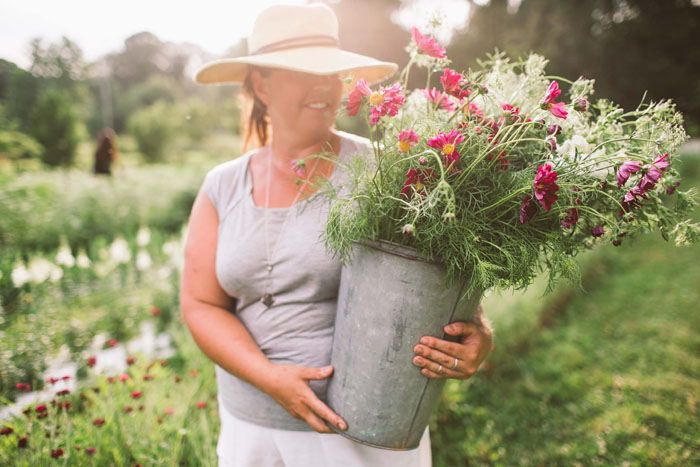
Could you describe some of the unique qualities of your flower business?
Love ‘n Fresh Flowers is unique in several ways. For starters, we are one of the very few wedding/event florists that grow all their own flowers. Yes, there are flower farmers who do some weddings and there are florists who grow a small cutting garden to pick from here or there, but there are only a very few businesses like Love ‘n Fresh Flowers that grow exclusively for weddings and use only what we can grow ourselves for our 70-some weddings each season. Additionally, Love ‘n Fresh Flowers is an urban flower farm located in the heart of Philadelphia. At this time, not many other full-fledge flower farms exist in major cities, certainly not on our scale. And finally, we grow all our flowers using organic practices. Unlike the flowers most traditional wedding florists use that have been shipped in from South America and other far-away countries, our flowers are grown within a few miles of our clients’ weddings and have never been sprayed with harsh chemicals of any kind.
When you were younger, can you recall some of your first impressions of flowers or a time that your eyes opened to the beauty of flowers?
I grew up on a 350 acre dairy farm with woods, pastures, and a huge kitchen garden full of beautiful blooms and foliage. My earliest memories are of walking down dusty farm lanes in the summer, picking wild queen anne’s lace and cornflowers to make bouquets to take back for our dinner table. One very specific and vivid flower memory from my childhood was picking wild sweet peas for my grandmother as I walked to her nearby house on Saturday mornings to watch cartoons. Those sweet peas were vivid pink, and I delighted in reuniting with them my first season as a flower farmer when I found a wild vine scrambling through the brambles along my farm’s fence line.
How have your childhood experiences influenced what you do today?
My farming sensibilities are deep rooted and clearly at play in my decision to become a flower farmer. The work ethic I learned as a farm kid definitely helps me put in the sun-up-to-sun-down hours that I do now with my own farm. My design style has always been highly influenced by those first bouquets picked while walking farm lanes. Nobody taught me how to design flowers once I got interested in becoming a florist since Mother Nature had done that long ago. Thanks to my childhood, what I do now is pretty instinctual, and I suppose that’s why it feels so good and simple.
What are some of the challenges you encounter with your business?
Finding land in the middle of a big city was the first major challenge. That took a couple seasons to overcome, but it was well worth the wait since I now have over two acres of stunning land and several great partnerships that have supported my flower farm in ways I didn’t even know were needed. Another challenge has been learning how to delegate and find the right people to trust to take on key tasks. For several years I tried to be a full time florist, a full time farmer, and a full time business owner/manager. So I was literally working 20 hours a day, seven days a week . My health and relationships suffered greatly for it. But I was stubborn and felt like no one could possibly do it all as well as I. Eventually I was forced to learn to build a team and trust them. I’m still learning, but I can say for certain it is so much better this way. It took awhile though to find the tasks I was willing to let go and the ones that were important to me to keep on my own to-do list. Once I figured that out, it was a lot smoother sailing.
Were you immediately successful? Did you ever go through discouraging moments or doubts?
Thankfully, Love ‘n Fresh was successful from the moment the doors opened. I have never had to take out a loan or worry about cash flow. I did a lot of homework before starting the business though and had a nice little nest egg that saw me through the first year. In my opinion, preparation is HUGE when it comes to starting a successful small business. But preparation is not to be confused with hesitation. If you want to start a small business, don’t keep hesitating because fear in holding you back. Do your homework and get your ducks in a row and then go for it! The fear is never going to go away, no matter how hard you try so you just have to walk into it and trust your instincts.
While this past winter was very discouraging with harsh weather that made farming incredibly challenging and killed a lot of my crops, oddly, the only truly discouraging moments along the way in my business journey have been when the business is so booming that I have no idea how to meet demand. That’s when my stress level gets uncomfortable, because I hate disappointing people who are seeking locally-grown flowers. But I suppose that’s a good problem to have, even if I lose a lot of sleep over it.
How do you educate yourself to become a successful flower farmer and designer?
In my case, I had a good platform of knowledge from my days growing up on a farm. But in addition to that, I spent a season volunteering 20+ hours a week on an urban farm to understand small-scale intensive farming. Then I went to work for Longwood Gardens to get formal horticulture training for two years. I also took my formal floral design coursework there. The experiences at Longwood were invaluable because I really learned the science of plants. I already had a ton of farming know-how but didn’t know much about plant and insect biology. Having that scientific knowledge in my wheelhouse enabled me to farm smarter, not harder, as they say. And when I started flower farming, I joined the Association of Specialty Cut Flower Growers, a national industry organization that helped me connect with experienced flower farmers who were very generous in mentoring me on flower-specific questions. Today I get to be one of those experienced farmers that mentors new growers, and it’s incredibly awesome and rewarding.
Where did your vision to grow your own flowers originate?
Funny, but it was always there. Don’t get me wrong. When I was getting my assorted college degrees, I had no idea I was going to be a flower farmer. But I knew that I wanted to return to farming, and I knew that I wanted to have my own small business. And even though I wasn’t saying “when I grow up I’m going to be a flower farmer” to all my friends, I was always thinking about flowers. Always. For example, one of my college psychology classes had us conduct a social experiment of our own design and record the results. The experiment I came up with was to hand out free flowers to strangers and record their reaction. Similarly, in a journalism class, I did a research paper on flowers in advertisements. I had no idea I was going to be a flower farmer then, but clearly it was on my mind!
How does your work challenge you as an artist?
Every single day my medium changes. A flower crop that was blooming goes out of season and a new crop comes into flower. Even after several years, the mix of flowers and foliage is never the same at any given time. I cannot predict when exactly a certain flower will bloom or if what I had hoped would be blooming isn’t. Sometimes I have to think fast and make something equally beautiful with different ingredients. This makes me a very versatile designer and keeps me from ever getting bored. I also get to constantly try new flower varieties to grow and add things to my crop list that have maybe never been seen before in traditional floristry. I have a lot of fun as a result, but it’s also a challenge to make it all work and look seamless on a client’s wedding day.
Describe your ideal client.
Creative. Thoughtful. Conscious of both the floral industry’s folly and the challenges of farming. Excited about my work. Excited about their wedding. Trusting. Interested in letting me take creative control to make their designs extra special but also clear enough on their own vision to give me some parameters so I know how to knock their socks off when it all comes together. Getting married outdoors, or at least not in a church. Prioritize flowers over a 12 piece band. Know how to stick up for themselves when pushy parents get involved.
What does a typical day (or year!) of work look like for you?
Let’s break it down by month, since every day is really different. The only thing that is consistent from day to day is that I usually start working no later than 6:30 AM and don’t usually finish up until 11 PM. Being a small business owner, florist, and farmer are not for the lazy.
January: Client meetings, proposals, and contracts for the coming year’s weddings. Crop planning. Starting seeds in the greenhouse for the coming season’s crops. Wading through snow to check on the ranunculus, anemones, and poppies growing at the farm.
February: Much of the same, only more seed starting in the greenhouse. The first harvests of anemones and ranunculus usually start this month. I often give talks to garden clubs this month and attend the ASCFG board meeting.
March: Still doing client meetings, proposals and contracts but ideally those are slowing down as we are usually 75% booked by March each year. Greenhouse work is at full throttle now. On a good year, we’re able to get out and start working in the field. Harvesting ranunculus and anemones is in earnest now. Near the end of March, we like to get in our first row or so of transplants. We usually have one or two weddings in March.
April: Major planting push on a normal year that involves tilling, spreading compost and bed prepping. More crops start blooming. We usually do four to five weddings in April. We also start our workshop season in April. Still meeting with clients, now usually some for the following year.
May: Still planting almost every day. Sowing even more seeds since seed sowing really never stops. We clear out the hoop house since the ranunculus and anemones have gone dormant and we plant dahlias in there instead for late summer/fall blooms. More crops are starting to bloom. Tulip harvest is relentless at the beginning of the month and then the end of the month sees peony harvest begin. These two crops are very time-consuming to harvest but well worth it. We usually have 10 to 12 weddings in May and more workshops.
June: Wedding season is at full tilt. Planting is slowing down a little bit. Harvesting is really ramping up. Our flower CSA starts in June and that adds a new task to our ever-long to-do list. I just try to survive weddings in June. It’s always a blur.
July: The heat comes and pushes the farm into maximum production. We harvest six to seven hours a day and just try to keep up with the weeds and watering the rest of the time. We typically have two to three weddings a weekend in July, but July brides are much more relaxed than June brides so the pace is not as frantic. I start hearing from a lot of new couples who are getting married the following year and so client meetings begin to pick up again. Surviving the heat and humidity is a job in-and-of-itself.
August: A last wave of intensive planting takes place for the current season in August. We plant lots of crops for the fall like amaranth, celosia, sunflowers, and ornamental cabbage. Harvesting and weddings aren’t quite as hectic in August but we’re still plenty busy with both. I usually start worrying about how bad my book keeping has been earlier in the year and try to dedicate some time to that in August.
September: No words can describe the insanity that is September and October. It is peak wedding season for us. We do four to five weddings, sometimes six, a weekend. The dahlias also come into full bloom and require several hours of harvesting every day. I just try to survive. I eat and sleep when I can. My friends know they won’t see me again until after frost.
October: Same as September. Only now the following year’s couples are getting really anxious and want to meet with me so I sleep even less. When frost comes, usually near the end of the month, there’s a deep sigh of relief and quiet grief all at the same time. I always cry that day. The harvesting goes way down. We have to clear the field crops and start prepping beds for winter crops.
November: Sweet bliss after the madness of the previous two months. I start to sleep a little more. We usually do three or four weddings in total in November. Several thousand dahlia tubers need to be lifted out of the ground, cleaned, and stored. The tulips, anemones, muscari, ranunculus, and narcisuss need to be planted for the following spring’s blooms. Several crops also need to be direct seeded so there’s still a lot of farm work and bed prepping to get done before the real cold settles in. I am once again meeting with several couples a week for weddings the coming season. We do a push for Thanksgiving orders.
December: No weddings in December. It is the one month of the year when we really don’t have anything blooming at the farm. We do Christmas greens/wreaths sales and workshops. Client meetings, proposals, and contracts start being my main focus again. I also spend a lot of time reviewing the season’s successes and failures and then placing all our seed and supply orders accordingly for the coming season. I take a week off between Christmas and New Year’s to spend with family. It’s usually my only true “downtime” every year.
What are some of your personality traits that help you excel in your work.
Stubborn. Analytical. Work like a dog. Stubborn. Creative. Quick to laugh. Stubborn. Quick to accept a challenging situation and not get run amuck by it. Emotional and passionate in many ways but stoic and professional when needed. Stubborn. Rock solid under pressure. Inventive. Good at reading people. Stubborn.
Does the business end of your profession come naturally to you? As a creative mind, do you have any difficulty with the practical details of yours flower business?
I’m so lucky to have the genes of both my parents coursing strongly through me. My father is analytical, practical and methodical. My mom is wildly creative and passionate. I got the best possible mix of the two, and it’s made running my flower business so much easier. The only thing that doesn’t come naturally to me is bookkeeping. I can do it, but I hate it. It was the first thing I outsourced as soon as I could afford it. I recommend the same to any creative types.
In your Design Philosophy, you call flowers “living poetry”. Could you explain what you mean?
Just take one look at a dahlia or ranunculus or peony. They will make you want to start writing verses of poetry. There is something exquisitely beyond words though when you look at a truly beautiful, healthy bloom. It defies description. That’s when it is living poetry. It happens all the time in our fields. The team will be harvesting and someone will hold up one perfect bloom. We all stop and look at it in silence for a while. We long ago stopped trying to talk about it.
You also mention in your Design Philosophy that you desire to live poetically. What does living poetically look like to you?
Living with purpose and thoughtfulness that in turn generates beauty for others and myself is living poetically. I want to feel like my daily life is interesting enough (if only to me) to merit writing down bits and pieces of it to remember later, like bits of poetry. If what I’m doing is not worthy of my awareness in each moment, then it is not what I should be doing. I have a hard time explaining this concept to people but it’s one of my core values. It’s not some hippy philosophy or hipster trend. It’s just a way of being present; of watching the leaves move in the breeze and the bees flit from one bloom to another.
How do you relax from your demanding business schedule?
In truth, I don’t. I really love what I do so I don’t mind doing it pretty much every waking moment. I do love to take long walks/hikes though when I have time. And watching my four Khaki Campbell ducks in the evening as the sun sets is a great way to relax. They’re good comic relief!
If you weren’t a farmer-florist, what would you be doing?
At the moment, being a farmer florist is all I want to be doing. It may change in the future but I couldn’t imagine doing anything else right now. I used to be a corporate cog and know for sure I’ll never go back to that. I already write for some magazines, but maybe in the future would want to take of writing as more of a full-time profession.
Can you share any of the best tips you have learned as an entrepreneur? What advice do you have for others looking to start their own business or looking to improve the one they currently do?
Write a business plan. It sounds so dry and annoying, but it’s really important to do if you want to start a business. You’ll probably never refer to it again after it is written, but the act of writing it is a great exercise for making yourself think about all the “what if” scenarios that you need to be prepared for once you’ve opened your doors. Take some small business classes from a local community college of you’re new to business planning. Start your bookkeeping from DAY 1. If you don’t, it’ll be overwhelming and you’ll have no idea if you’re being successful or how to plan for the future without it. No matter what your accountant says, never file for an extension on your taxes (the interest the government charges until you’ve filed is ridiculous). Get a professional headshot of yourself and put it up on your business website’s About page. If you don’t have a business website, get one NOW. I don’t care if you do have a million followers on social media, a website is critical to a thriving business and loyal customers. Explore all the amazing small business support services Google/Google Apps has to offer. I regularly want to kiss someone at Google for solving yet another of my small business management problems!
Where do you receive inspiration? What do you do to rejuvenate your mind and spirit?
I always walk the flower rows at the farm when I’m feeling burnt out and in need of inspiration. It’s fool-proof medicine.
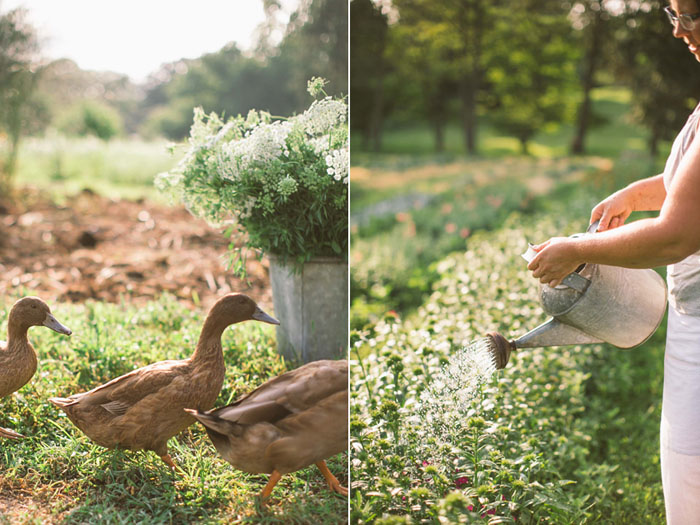
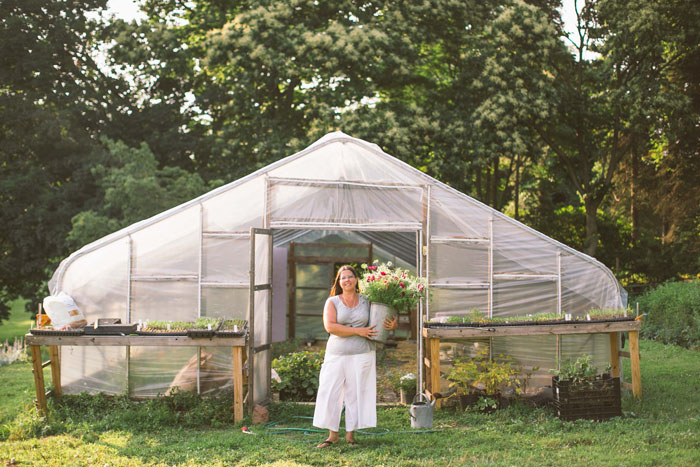
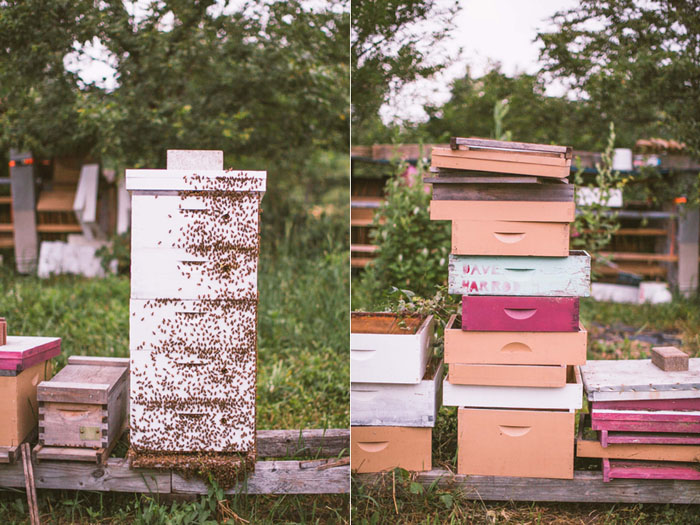
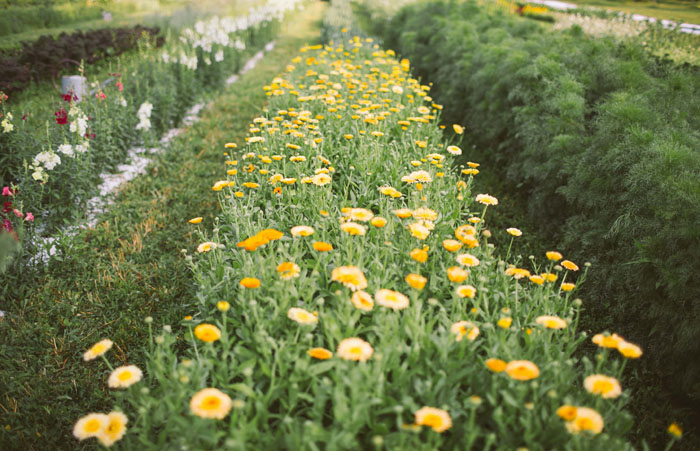
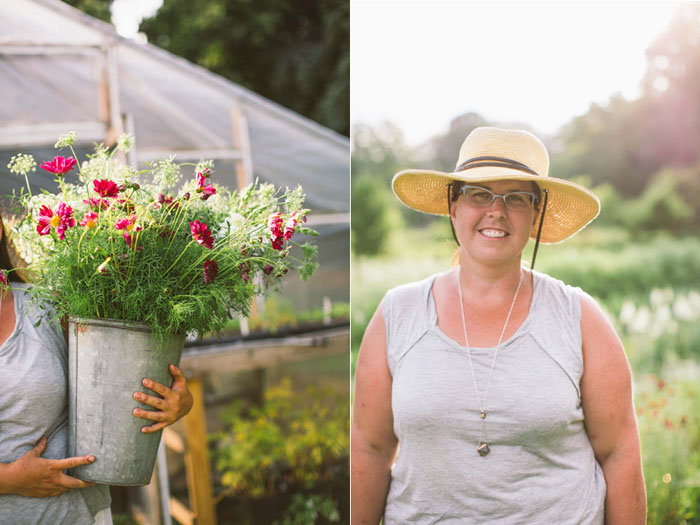
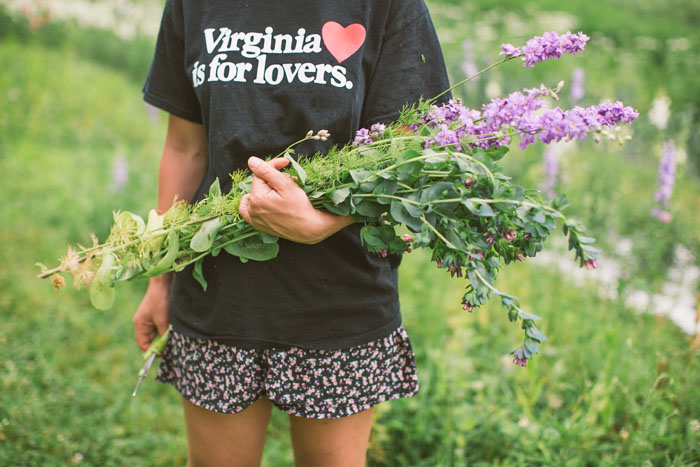
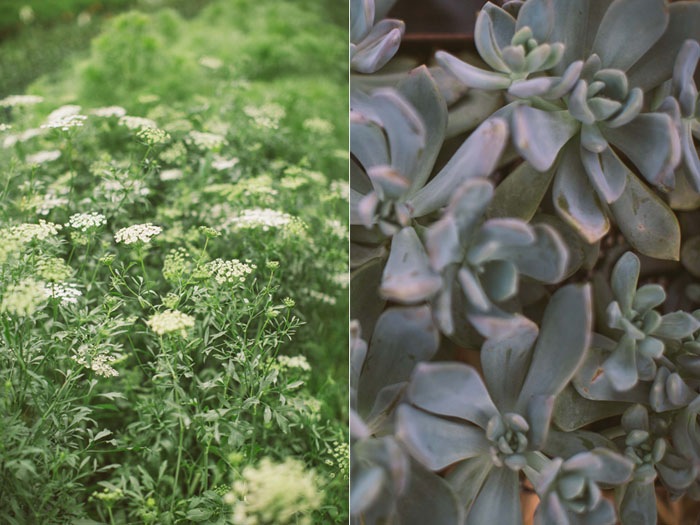
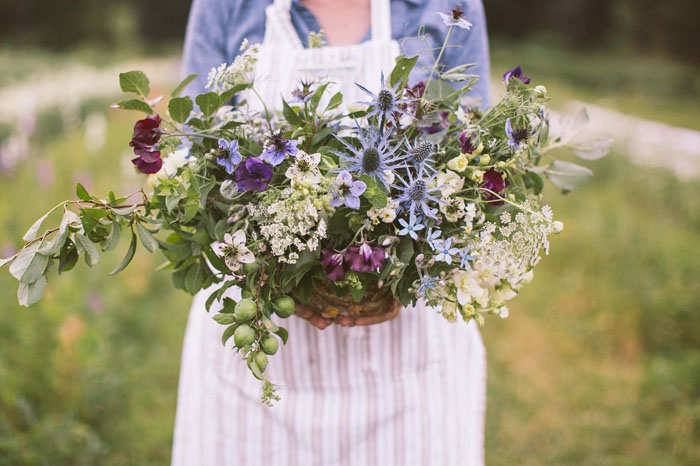

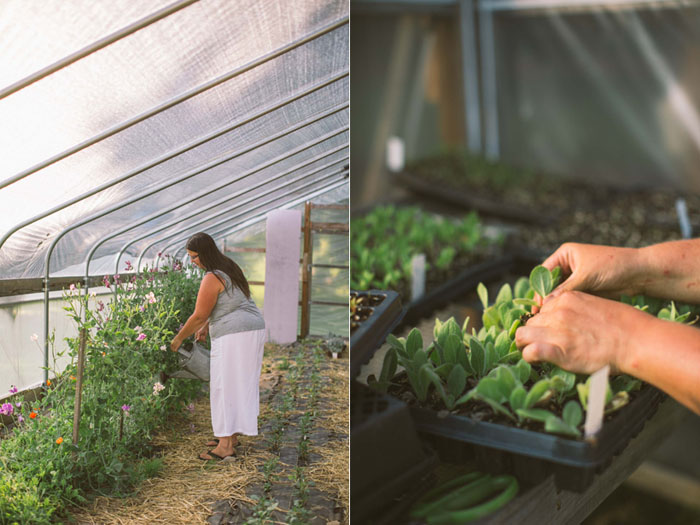
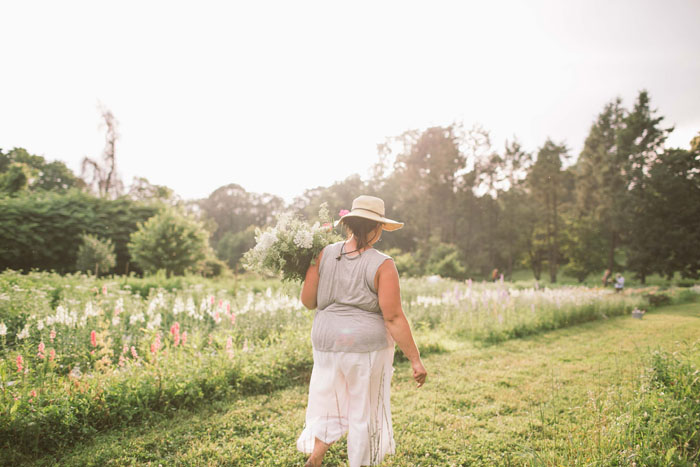
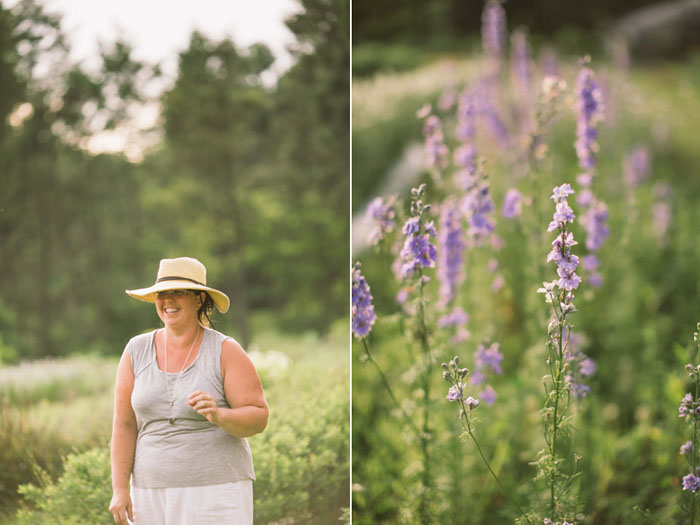
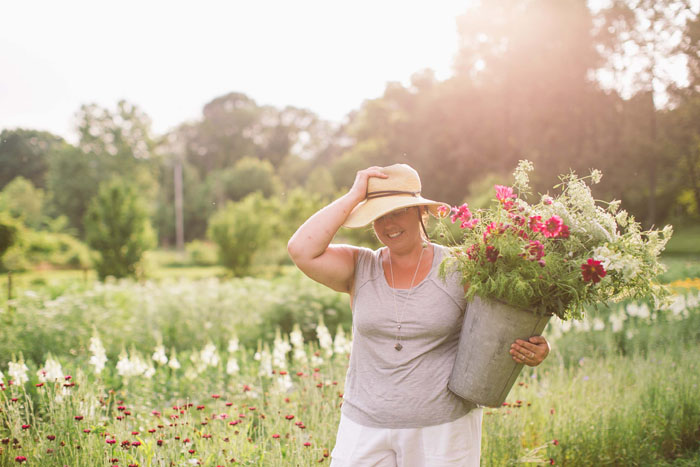
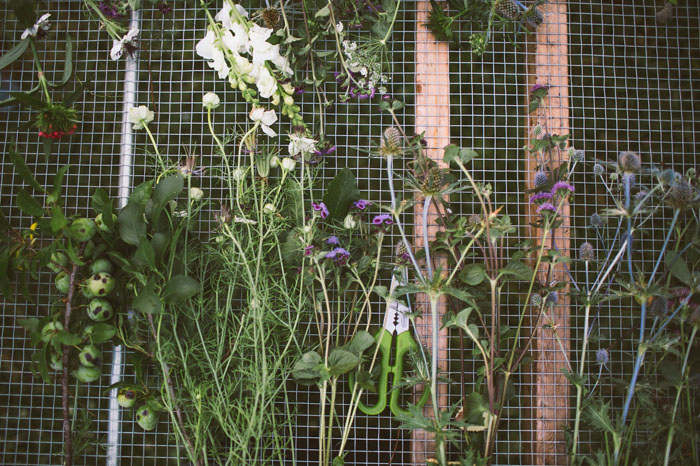
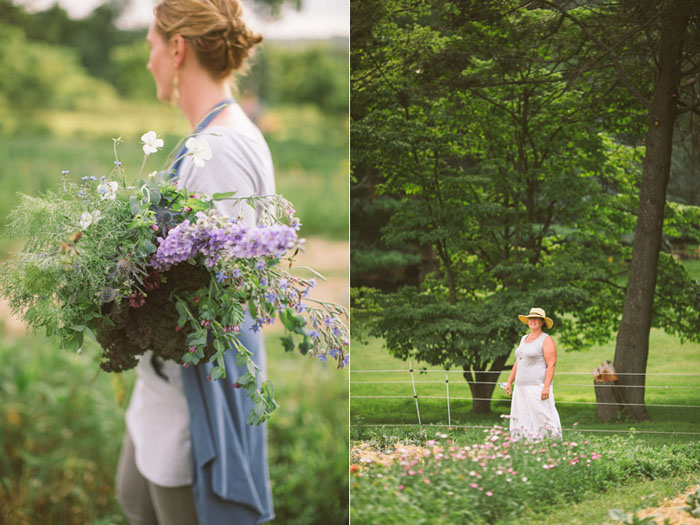
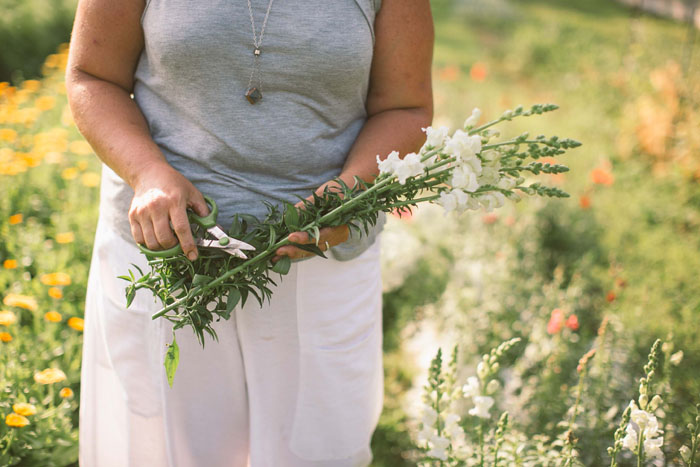
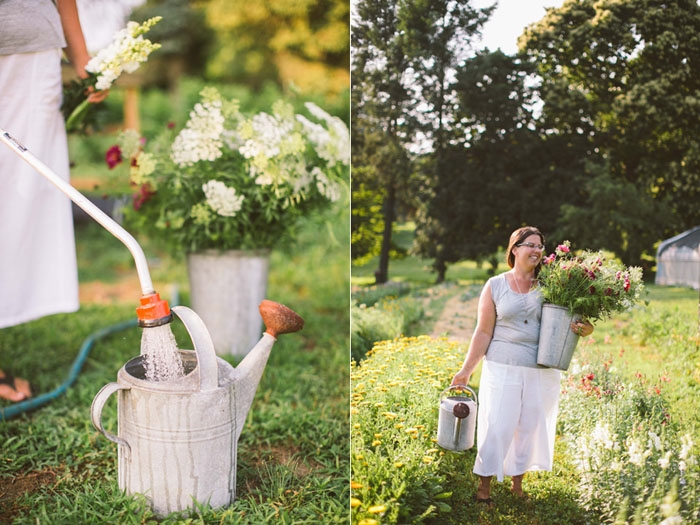
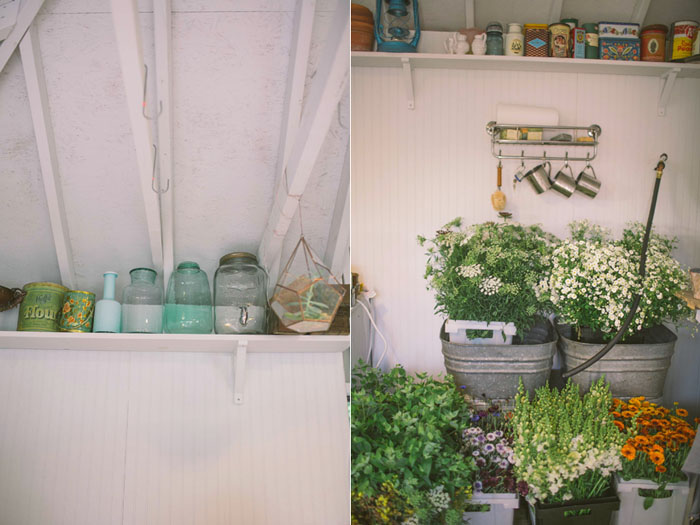
Jennie had a workshop the night we were there photographing….
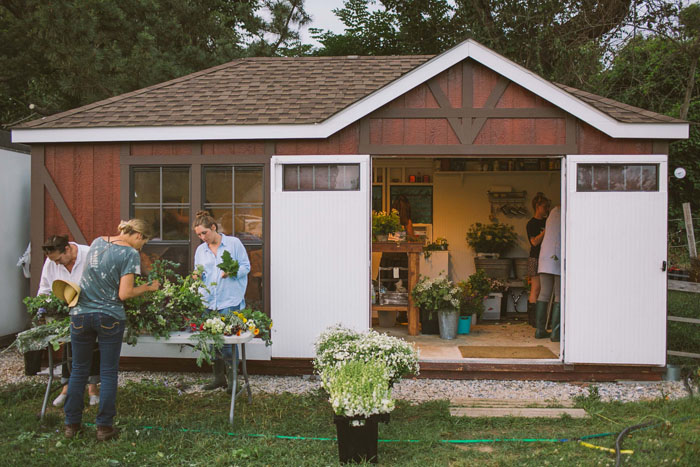
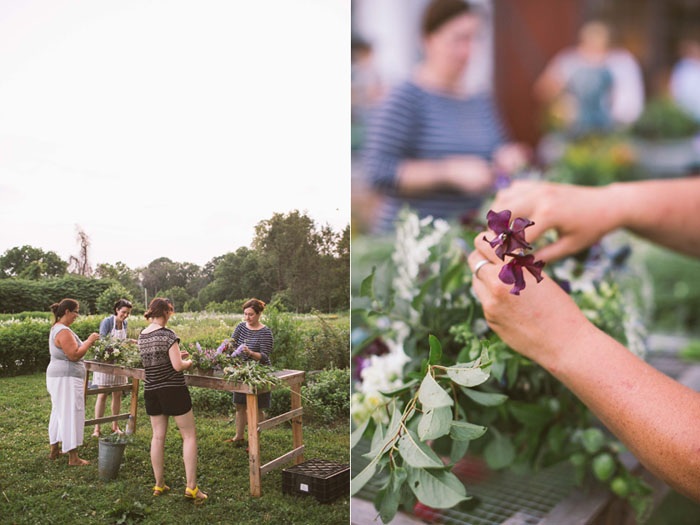
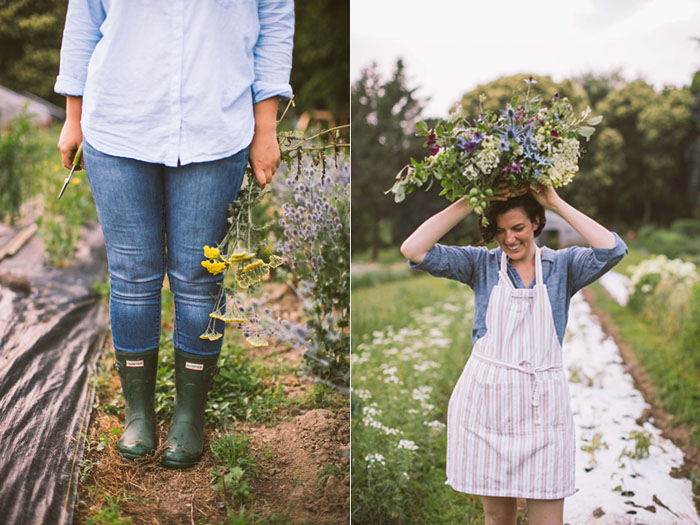
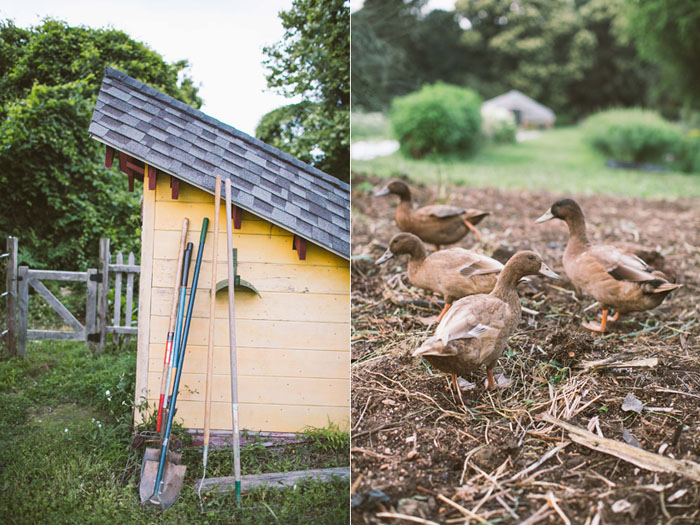
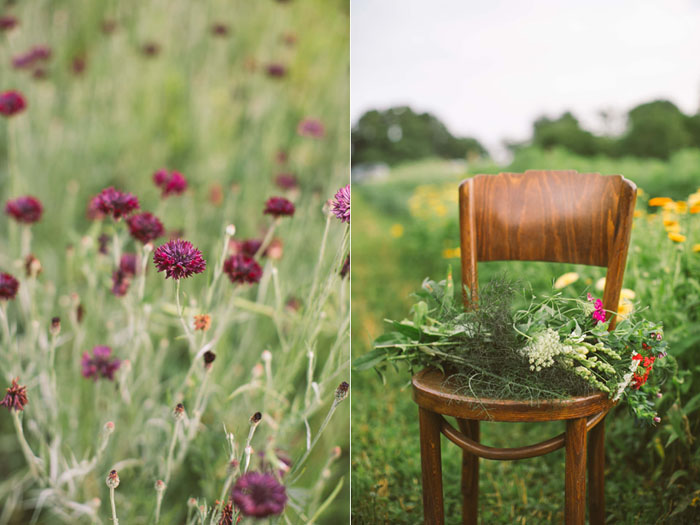
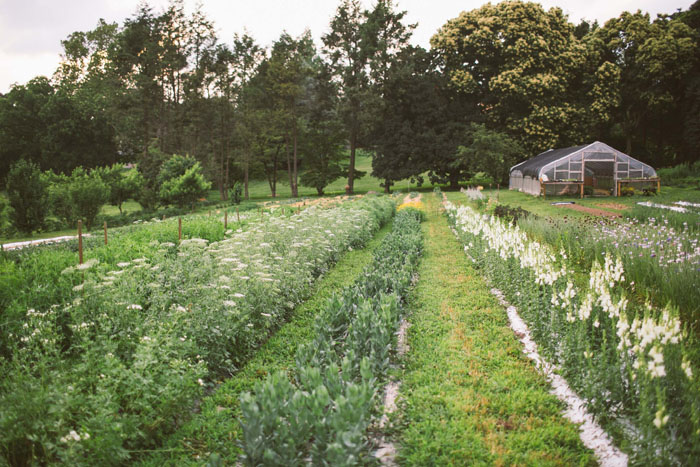
Leave a Reply
Start creating your beautiful brand STORY.
GET STARTED
Thank you so very much for the beautiful feature!!! Such lovely photos, Char! Thanks Karen for the lovely write-up too! xo
Jennie
Thank you for this inspiring insight Jennie
Ahhh, Jennie ~ you are the best!!!! Great post CHAR team, I can only imagine how inspired you were after walking through Jennie’s fields!!
Hi, This article was great for an aspiring floral designer like myself. Thanks.